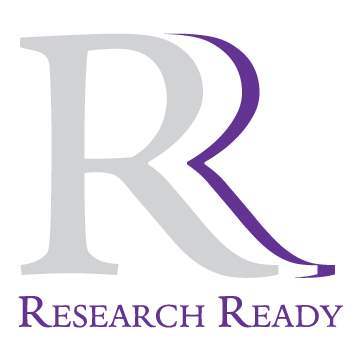Rigor in Qualitative Descriptive Studies
Rigor in Qualitative Descriptive Studies
Essential Questions
- What are the five standards used to assess the quality and trustworthiness of a qualitative, descriptive study?
- How are these standards defined?
- What strategies are used to establish the presence of the trustworthiness components?
Some qualitative researchers do not provide adequate information in their reports about the analytic strategies used to ensure credibility or “truth” of research findings and conclusions.
The techniques the research relies upon the most during the conduct of a qualitative descriptive study should be addressed in the final research report. These strategies will establish the study’s ‘‘trustworthiness’’ and ‘‘authenticity.’’ Five standards used to assess the quality and trustworthiness of qualitative descriptive studies include: objectivity, dependability, credibility, transferability, and application. These terms will be defined in these modules and strategies are covered to show the researcher how to apply these in the analysis of the data.
Objectivity
Objectivity is defined as the researcher’s neutrality and reasonable freedom from bias. Strategies to establish objectivity include:
- Describe the study methods in explicit detail.
- Share the processes followed for data collection, analysis, and presentation (audit trail).
- Be aware of and report personal assumptions and bias.
- Retain study data and keep available for review if needed.
Dependability
Dependability (also known as reliability) is defined as the quality control and consistency in procedures across participants and over time. Strategies to establish dependability include:
- Link the research questions to a conceptual or theoretical framework so that data analysis can be linked back to the theory.
- Describe the researcher’s role and status at the site where data collection occurs.
- Use the same researcher and data collection instrument (interview questions asked in the same order).
- Develop an a priori or starting list of codes based on the theoretical framework and literature.
- Develop a monitoring plan to ensure the researcher does not go beyond the “data” in interpretation and presentation of the findings.
- Collect and analyze data simultaneously to give the researcher the opportunity to correct errors or make revisions.
Credibility
Credibility refers to the credibility, or truth value of data. In other words, check to see if the findings make sense. Strategies to establish credibility include:
- Provide ample data along with a thick, context-related description.
- Check results with other researchers to see if the findings make sense.
- Provide a comprehensive account of data collection activities.
- Incorporate triangulation strategies.
- Look for negative evidence or rival explanations (areas where results differ or stick out).
- Link findings back to the theoretical framework.
Transferability
Transferability refers to whether the findings of the study are important to the larger settings or are applicable to other settings or studies. Strategies to establish transferability include:
- Describe participants fully so comparisons with other groups can be made (demographic questionnaire).
- Describe threats to generalizability through sample and setting sections,
- Present findings that are congruent with theory
- Discuss ways results of your study could be tested further by other researchers.
Applicability
Applicability refers to the “action orientation” of the data. What does the study do for participants and consumers? Strategies to establish transferability include:
- Make findings available through publications, poster presentations and summary reports
- Findings may stimulate policy recommendations, policy or change to a product/process or environment.
Qualitative Descriptive Modules
- Features of Qualitative Descriptive Studies
- Ontology, Epistemology and Descriptive Qualitative…
- Designing a Qualitative, Descriptive Study
- Data Collection in Qualitative, Descriptive Studie…
- Thematic and Content Analysis in Descriptive, Qual…
- Advantages, Limitations and Challenges of Qualitat…
- Rigor in Qualitative Descriptive Studies
- Presentation of Data and Findings
- Comparing Qualitative Descriptive Research with Ot…
- General Procedures for Data Management and Analysi…
Page Options

